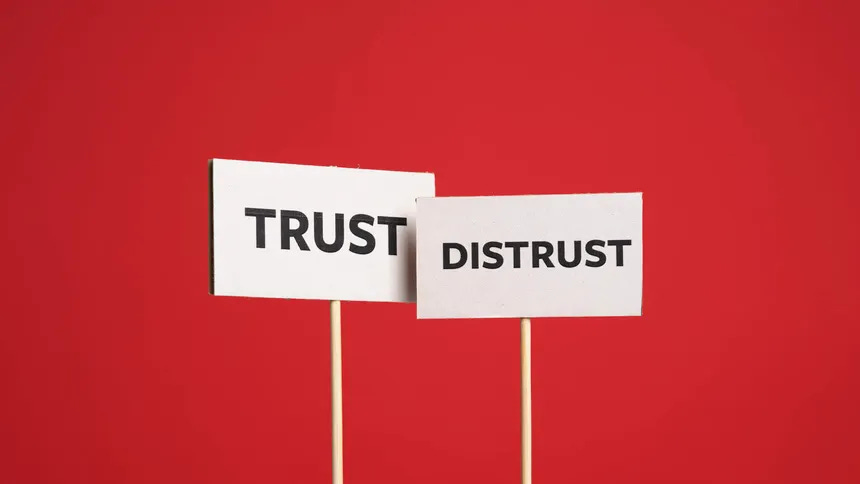In a media landscape where attention is fractured, audiences are shrinking, and technology is reshaping how we consume information, it’s time to ask: why does the CBC still cost Canadian taxpayers nearly $1.4 billion every year?
This isn’t a flippant question. It’s a necessary one—especially in an age where trust in institutions is plummeting, public debt is soaring, and the very concept of impartial journalism is under siege. The CBC is not just any media outlet; it is one of the most heavily funded public broadcasters in the world, and increasingly, it feels like a relic of another era.
A Shrinking Audience
CBC’s viewership has been steadily declining over the past decade. Since 2014, its television news audience has dropped by approximately 52%. Its flagship broadcast, The National, now draws fewer than 300,000 viewers each night—compared to over one million for CTV’s equivalent program. CBC News Network, the channel’s 24-hour news outlet, captures a mere 2% of Canadian TV news viewership. These figures point to a broadcaster that no longer commands the trust or attention of the public it claims to serve.
The digital picture is no salvation either. CBC reaches around 17 million Canadians online each month, but the average visitor spends just 20 minutes per month on its platform. This suggests that readers skim the headlines but then cut and run. In contrast, Canadians spend an average of over 20 hours per month on YouTube. In an era where people binge-watch content and deeply engage with platforms they value, CBC's level of engagement is shockingly poor.
Among younger Canadians, the decline is even more dramatic. Fewer than 17% of Gen Z engage with CBC content. Millennials and younger overwhelmingly get their news and entertainment from alternative sources—YouTube, podcasts, social media, and streaming platforms dominate their media diets. In other words, the CBC is failing to capture the very audience that will define the future of Canadian media.
CBC’s entertainment division paints an equally bleak picture. Since 2015, viewership has dropped by about 51%. The network’s most popular shows average between 500,000 and 900,000 viewers, while competing programs on CTV or Global regularly attract over two million. CBC Gem, the corporation’s streaming platform, has a monthly user base of just 1.1 million, dwarfed by giants like Netflix, which is available in over 60% of Canadian homes. After losing NHL broadcasting rights—a major audience draw—the CBC lost what little broad national appeal it had left.
A Long History of Political Patronage
The CBC was established in 1936 by a Liberal government with the goal of uniting Canadians and promoting national identity through public broadcasting. For decades, it fulfilled a public good—particularly when private media couldn’t reach rural or underserved communities. But today, it serves less as a unifying force and more as a government-subsidized echo chamber.
Throughout its history, the CBC’s budget has expanded and contracted based on political convenience. From the 1950s to the 1970s, Liberal governments steadily increased funding. In 1984, Brian Mulroney’s Conservative administration cut it by 10–15%, leading to significant layoffs. The most drastic reduction came in the mid-1990s when Jean Chrétien’s Liberal government cut funding by approximately 30%—the largest in CBC history. Harper's Conservatives slashed another $115 million in 2012, only to see it restored and increased by Justin Trudeau in 2016 with a $150 million boost.
This financial whiplash exposes a core truth: CBC’s survival is tethered to the ruling party of the day. It cannot credibly claim to be independent when its very existence depends on politicians who stand to benefit from its coverage.
It’s also worth highlighting the clear divide between the approaches of Mark Carney’s Liberals and Pierre Poilievre’s Conservatives. Carney has pledged to boost CBC’s funding by an additional $150 million, pushing the annual total beyond $1.5 billion. In stark contrast, Poilievre has committed to slashing the bulk of that funding and dramatically scaling back the broadcaster’s mandate.
Bias and Public Trust
CBC no longer pretends to be neutral. Multiple studies have revealed a stark partisan divide in trust: only 49% of Conservative voters trust the CBC, compared to up to 90% of Liberal voters. That’s not just polarization—that’s an admission of political alignment. It’s not just Conservatives crying foul. Even centre-left Canadians increasingly acknowledge the network’s progressive tilt.
Former CBC producers and journalists have confirmed what many Canadians suspect: that internal groupthink, ideological homogeneity, and political filtering dominate editorial decisions. The most striking example came during the Freedom Convoy protests, when CBC helped push a debunked narrative of foreign funding and extremism—an editorial decision that reeked of political motive rather than journalistic integrity.
When a publicly funded news outlet becomes indistinguishable from the communications arm of the sitting government, it ceases to be journalism. It becomes propaganda.
The Overstated Case for CBC
Defenders of the CBC argue it supports regional programming, minority languages, Indigenous voices, and local journalism. These are noble aims, but they do not require $1.4 billion annually, nor do they justify the CBC’s current size and mandate.
CBC accounts for about 5–7% of Canada’s film and TV funding annually, or roughly $200–$250 million per year. It helps trigger additional funding through programs like the Canada Media Fund and supports 7,000–8,000 industry jobs. However, it’s misleading to claim that these jobs would vanish overnight. Many could be sustained through independent production companies, tax credits, and existing federal arts funding—without requiring a centralized state broadcaster.
Yes, CBC has helped launch some notable successes. Schitt’s Creek, Anne with an E, and Heartland have all earned praise. But these exceptions do not justify the bloated bureaucracy, redundant programming, and stale content that dominate CBC’s lineup today. Quality Canadian stories can and do exist without government-run media. In fact, Letterkenny (8.6 IMDb) and BlackBerry (97% on Rotten Tomatoes) prove that great Canadian content thrives outside CBC’s reach.
The notion that CBC is essential to preserving Canadian identity is outdated. Today, identity is shaped through the internet, through independent voices, and through borderless platforms that carry Canadian content to global audiences. CBC’s model is not just inefficient—it’s irrelevant.
Time to Cut, Refocus, and Rebuild
CBC doesn’t need another reform. It needs a complete overhaul. Its bloated budget should be slashed to a focused $100 million annually. That money should be used solely to maintain a nonpartisan public record of government proceedings—Parliamentary broadcasts, emergency announcements, and basic civic information. Think CSPAN, not CNN. Public service, not public narrative.
All other functions—entertainment, editorial, opinion, drama, satire—should be left to the free market. Canada’s media landscape is already diverse and vibrant. Let the creators create. Let the market compete. Let taxpayers keep their money instead of funding a megaphone for bureaucrats and politicians.
Conclusion: Cut the Cord
CBC is no longer a cultural lifeline—it’s a costly relic. What was once a tool to unite Canadians has become a taxpayer-funded platform for partisan messaging, stale content, and dwindling relevance. With viewership collapsing, trust eroding, and bias entrenched, it’s time we stop pretending this is the public’s broadcaster.
Canadians deserve real journalism, not government spin. They deserve real value for their taxes, not a billion-dollar dinosaur with a chip on its shoulder.
The solution isn’t to save the CBC. It’s to shrink it, strip it of spin, and return it to what public media should be: a neutral, accountable, and minimalist platform that informs, not indoctrinates. The age of the state-run broadcaster is over.
Cut the cord—and let a free and independent media take its place.










It’s what the liberal government wants, they don’t bend to the will of the people, they bend the wills of the people until they break them. Then they hire cbc to brainwash us. The current and previous liberal leader both openly admire the Chinese government so they want to bring that here.
Canadians are NOT bankrolling the CBC. Canadian liberal politicians are bankrolling the CBC using money extorted from Canadians.